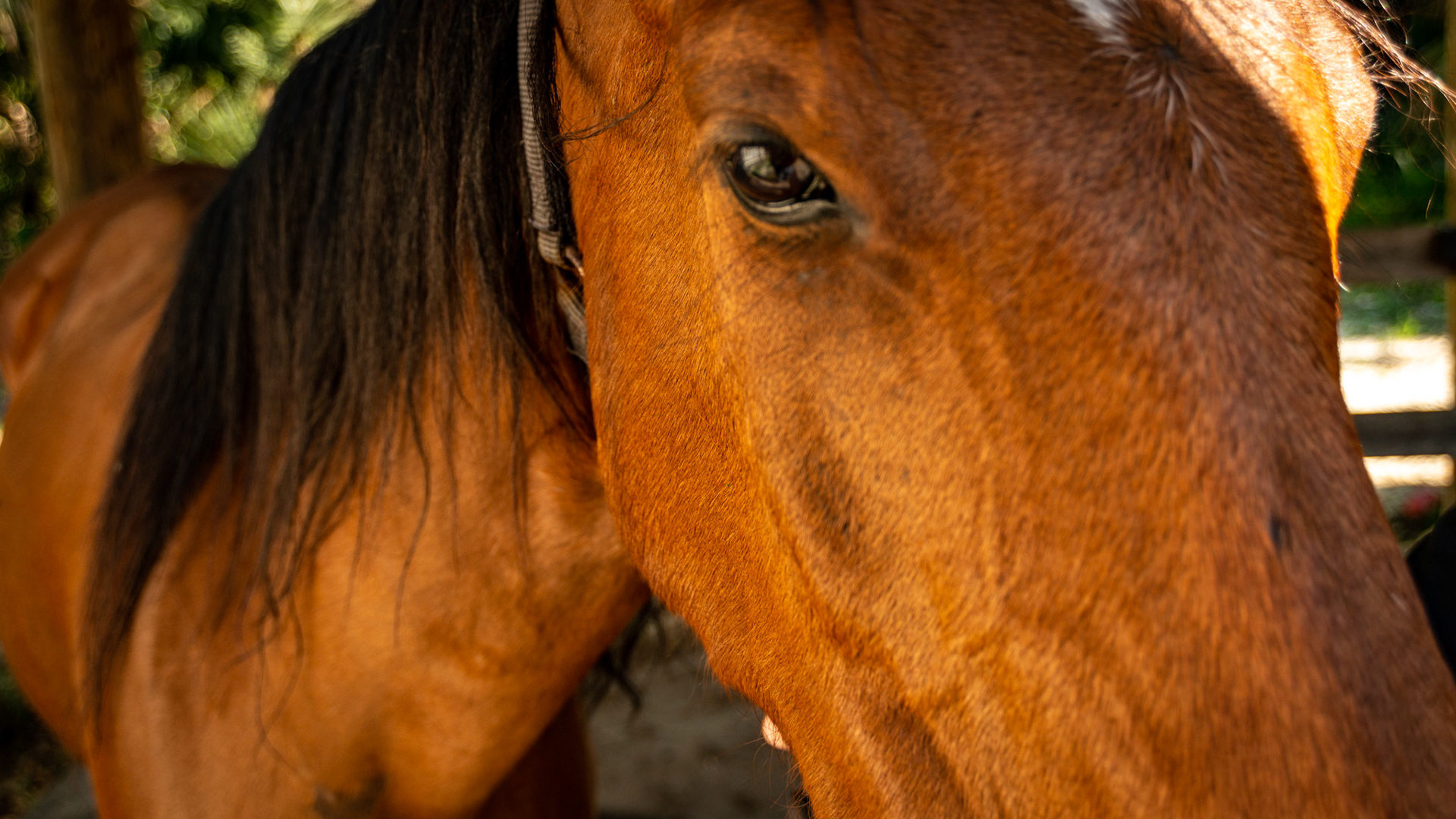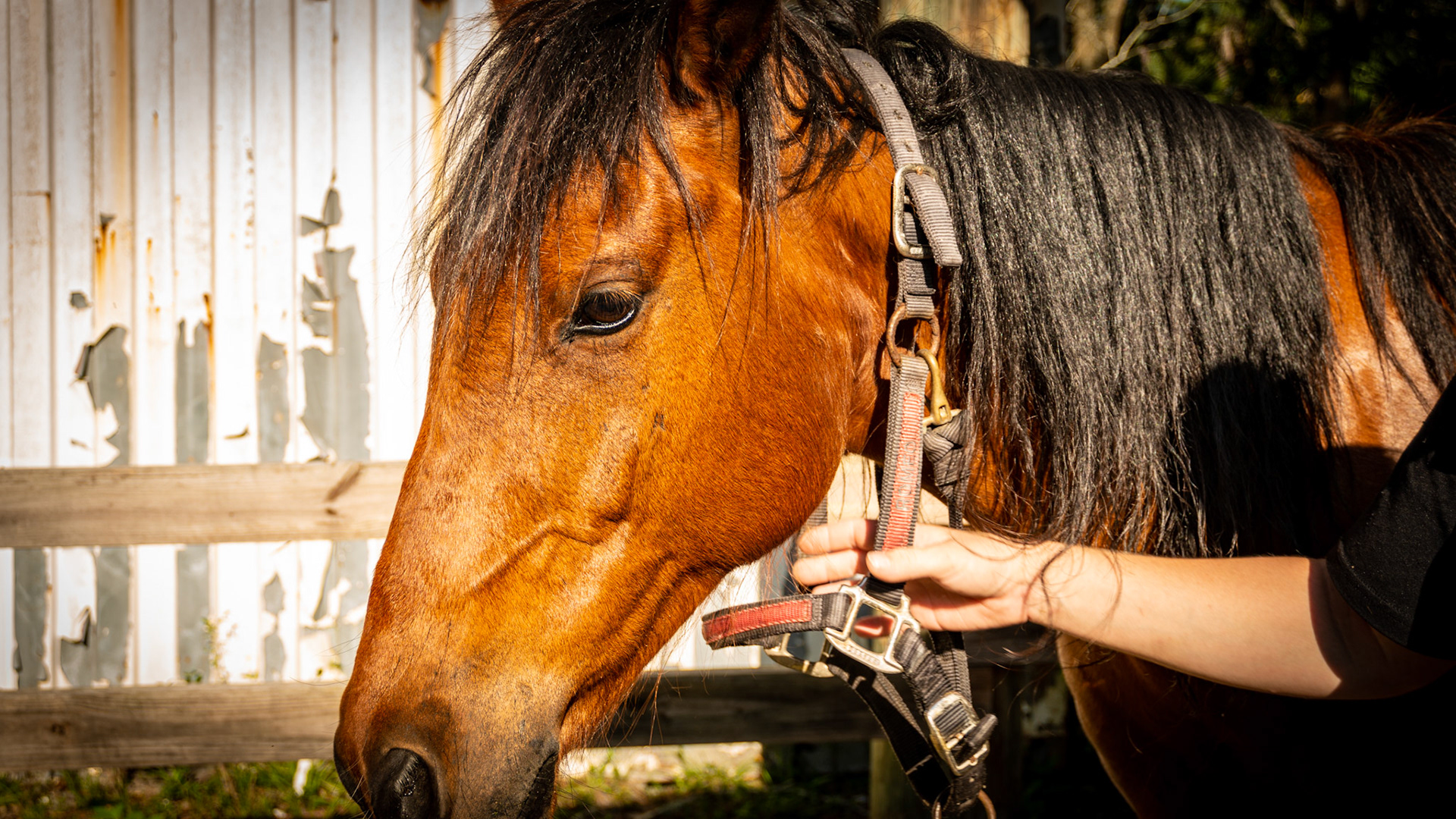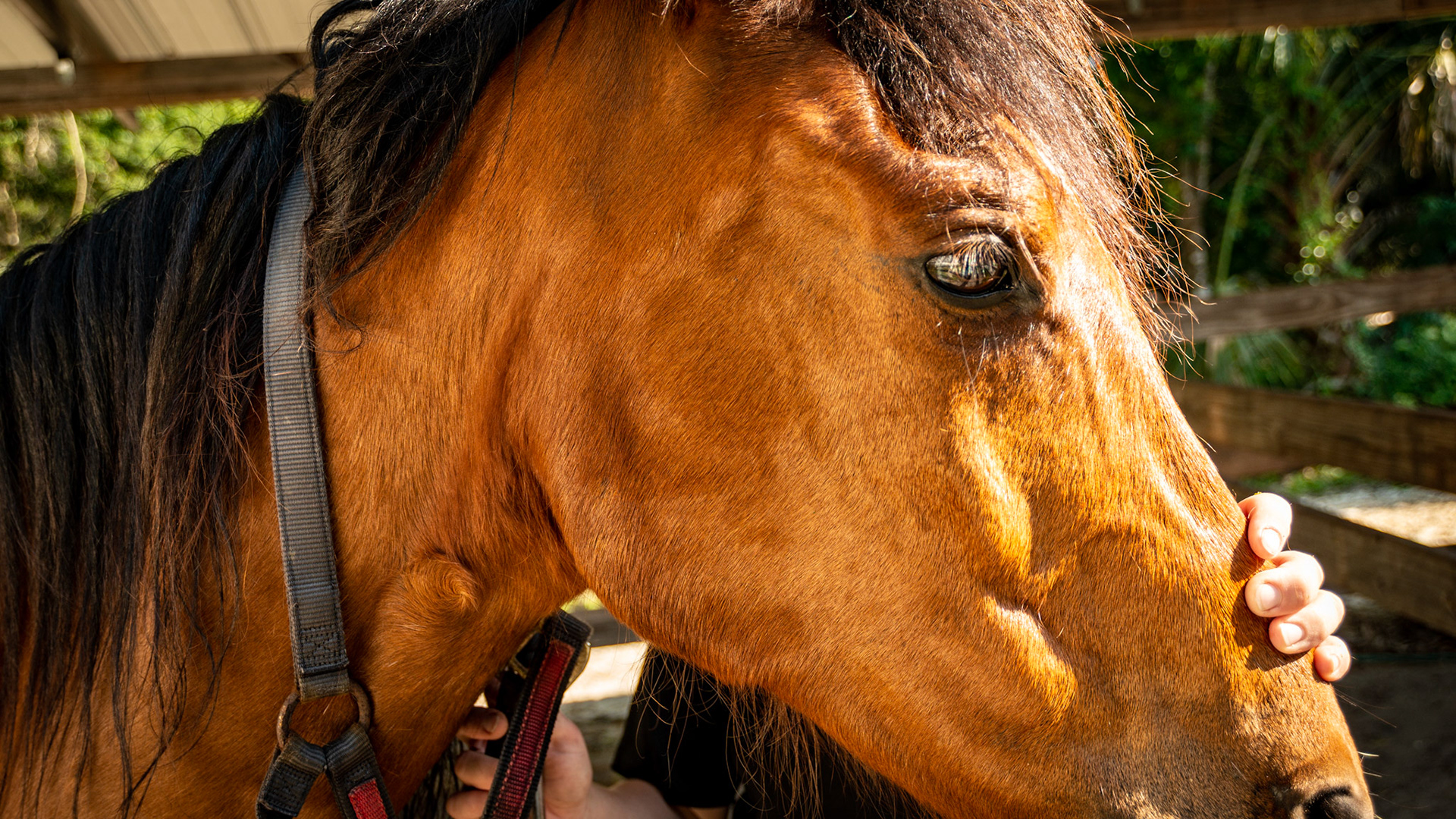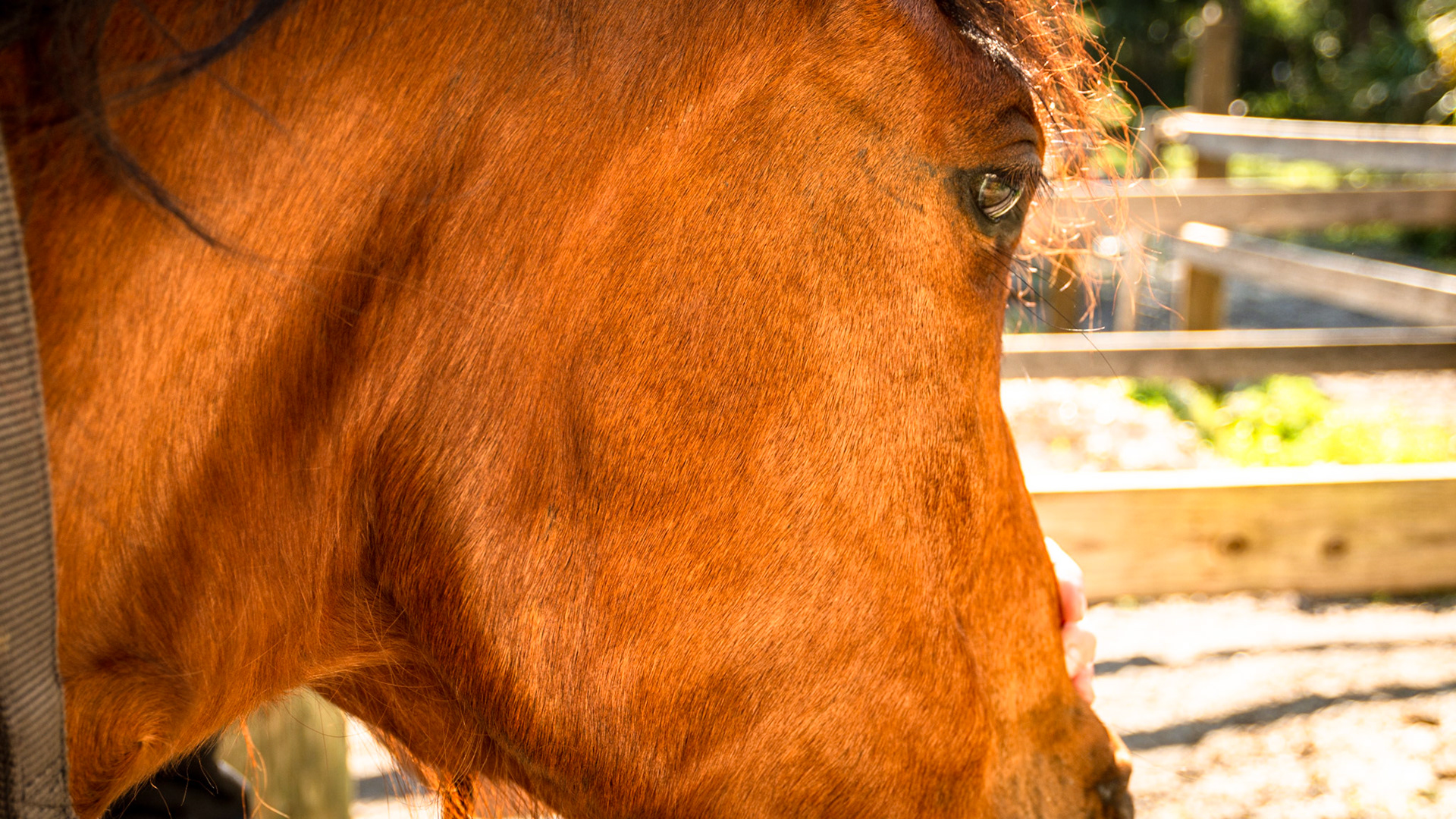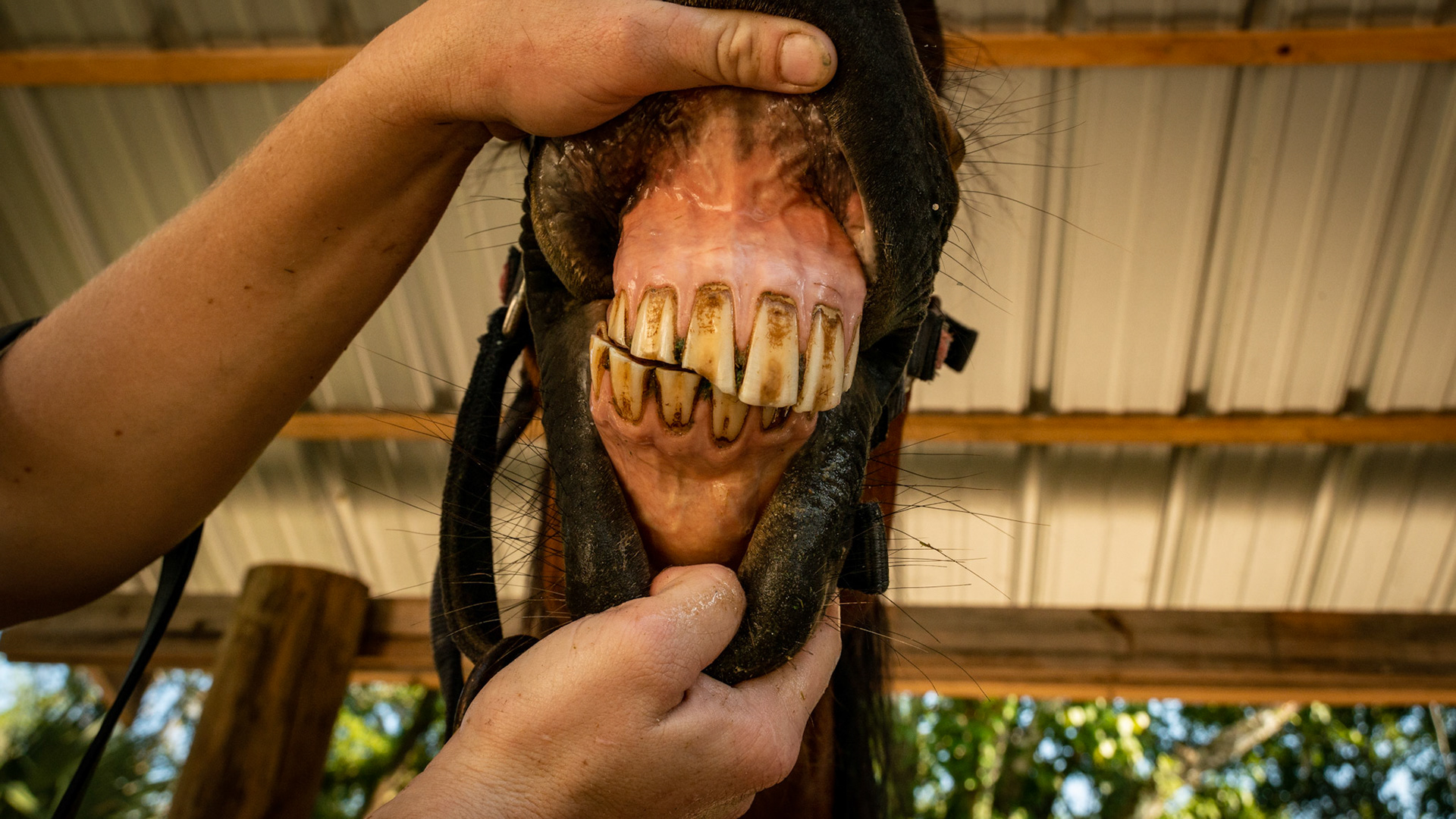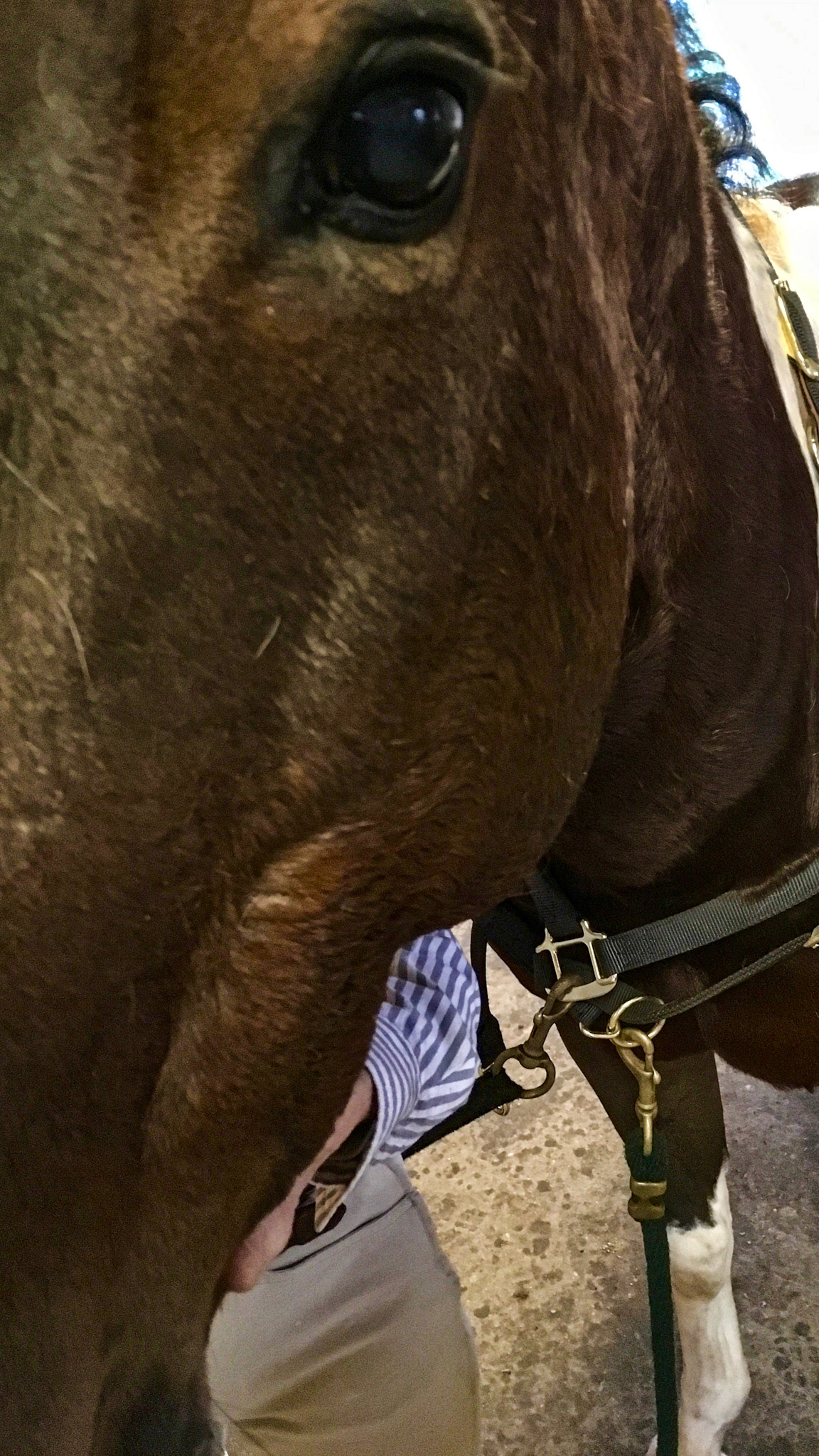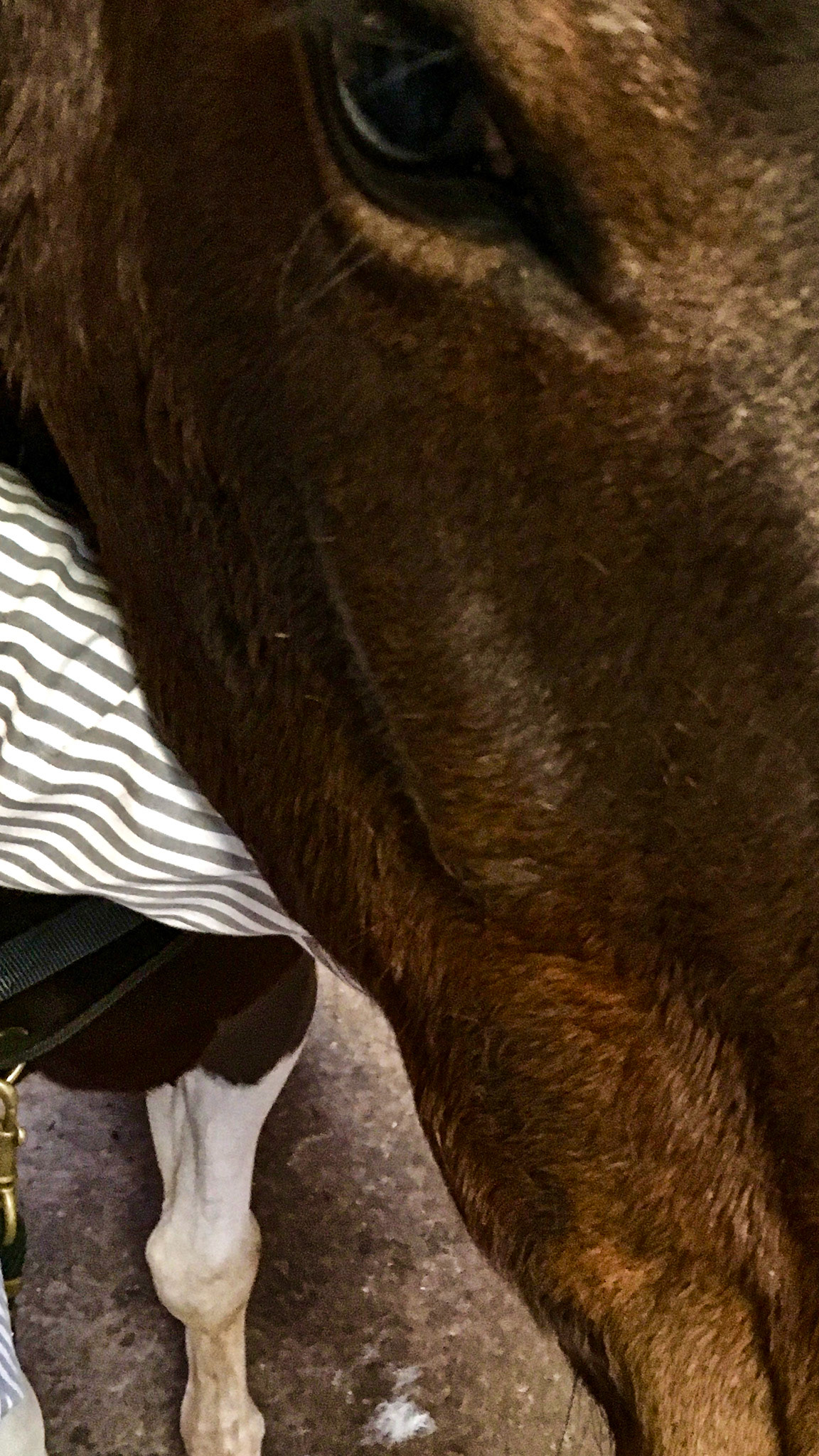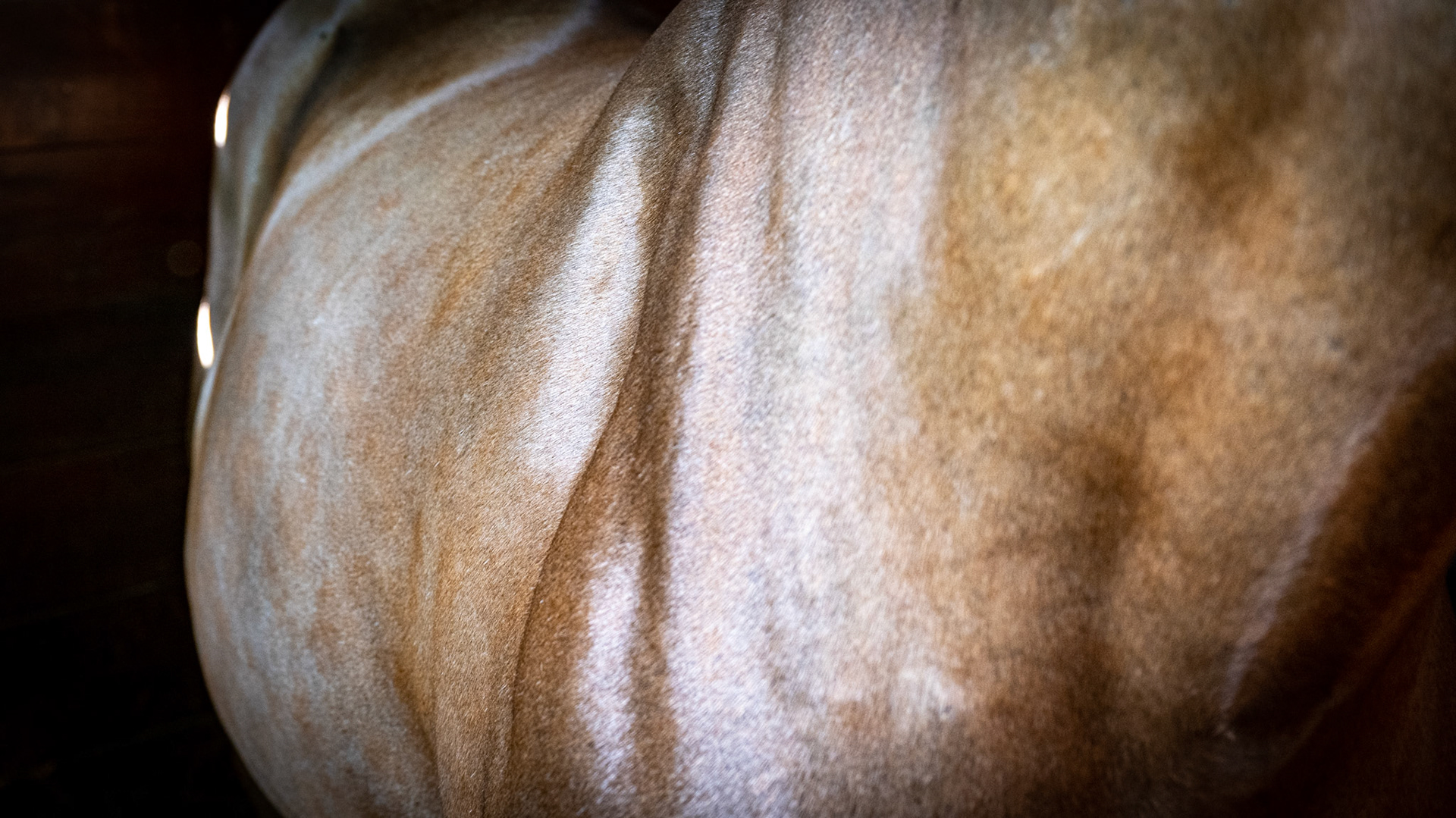
The right cheek muscle (masseter muscle) is atrophied (shrunken) and the horse is unable to open the mouth more than an inch and a half (3.5 to 4 cm). The left cheek muscle appears normal. This is usually due to trauma to the nerves causing the atrophy and then the scaring of the muscle preventing it from expanding allowing the mouth to open.

The right cheek muscle (masseter muscle) is atrophied (shrunken) and the horse is unable to open the mouth more than an inch and a half (3.5 to 4 cm). The left cheek muscle appears normal. This is usually due to trauma to the nerves causing the atrophy and then the scaring of the muscle preventing it from expanding allowing the mouth to open.

The right cheek muscle (masseter muscle) is atrophied (shrunken) and the horse is unable to open the mouth more than an inch and a half (3.5 to 4 cm). The left cheek muscle appears normal. This is usually due to trauma to the nerves causing the atrophy and then the scaring of the muscle preventing it from expanding allowing the mouth to open.

The right cheek muscle (masseter muscle) is atrophied (shrunken) and the horse is unable to open the mouth more than an inch and a half (3.5 to 4 cm). The left cheek muscle appears normal. This is usually due to trauma to the nerves causing the atrophy and then the scaring of the muscle preventing it from expanding allowing the mouth to open.

The atrophied right cheek muscle and the limited ability to open the mouth (see previous images) has caused the incisors to wear unevenly. The condition of the cheek teeth are unknown as even with potent pain medication, the mouth opens only wide enough to insert the float but not wide enough to examine with fingers or visually.

Right masseter muscle atrophy from EPM responsive to treatment with levamisol decoquinate. However he is unable to open the mouth fully and is unequal in tooth wear - sharper on the left.

Right masseter muscle atrophy from EPM responsive to treatment with levamisol decoquinate. However he is unable to open the mouth fully and is unequal in tooth wear - sharper on the left.

Sweeney - The loss of muscles of the shoulder blade is secondary to damage to the nerve supplying the muscles. The nerve is the suprascapular nerve and the official name of sweeney is suprascapular neuropathy.
